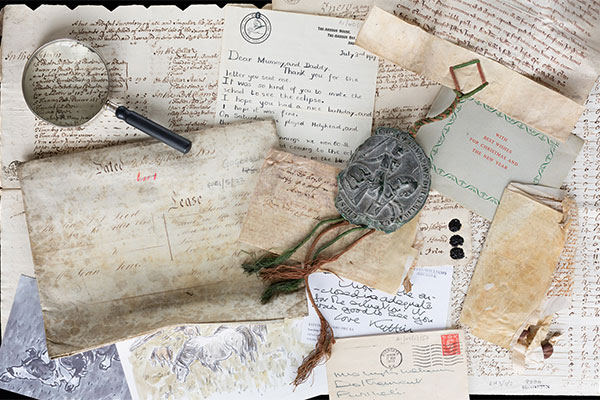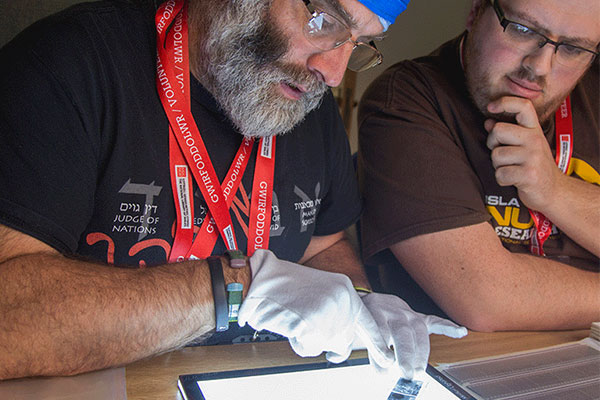Lampeter parochial records 1
Parish records are usually thought of in terms of registers of baptisms, marriages and burials, but parishes also had responsibilities for significant elements of local administration. Here we see one particular type of parochial record, namely a vestry minute book of Lampeter (Ceredigion) for the years 1777-1803.
What were vestry meetings?
From the sixteenth century until the late nineteenth century, the parish as an unit was responsible for an ever increasing range of matters including the care of the poor, repairing and improving highways, and some aspects of law and order.
Responsibility for parish administration was vested in the vestry. In theory, vestry meetings were open to all in the parish, but usually only the most prominent inhabitants took part in the discussions. As the name suggests, the meetings took place in the vestry of the parish church, but very often the meetings were held (or 'adjourned to' as recorded in the minutes) to the home of one of the parishioners, or to the local inn. The meetings of the vestry were not confined only to Anglicans, dissenters also took part in the discussions and decision making about such matters as the setting of rates and the appointment of officers.
Vestry meetings minutes
The minutes of vestry meetings are usually very concise: decisions were recorded and then signed by all present. The minute from the Lampeter vestry book for 19 July 1779 is a good example, and it also shows the nature of the vestry's responsibilities.
At a Vestry held at the Parish Church of Lampeter and Adjourn'd to the House of William Davies this 19th Day of July 1779.
We the Parishioners then Present have agreed to levy Taxes for the Making and repairing of the Road that leads by Cwmjago at 3½d per Pound.
allow'd to the Widow of John Evan an Augmentation of 6d. per week commencing the 4th of July, 1779.
allow'd Two flannel Shirts for Evan the Ideot
Likewise allowd. to the Widow of James Rees Philip one Flannel Smock and one Pair of Shoes.
Likewise allow'd to Thomas David William two Shillings in order to go to the sea side for the sake of his bad state of Health.
Present,
W. Williams, Clr.
Oakley Leigh
James Morgan
David Davies
Chelton Leigh
Vestry meetings lost their powers during the nineteenth century. In 1834 their responsibilities to look after the poor were transferred to the Poor Law Unions, and as a result of the Local Government Act 1894 civil parish councils were established to undertake the local administration that had been the work of the vestry until then.
Further reading
- John Rowlands, 'Parochial records', in Welsh family history: a guide to research, edited by John Rowlands and others. (Association of Family History Societies of Wales, 1993).
Discover & Learn
- Digital exhibitions
- Europeana Rise of Literacy
- Illingworth
- David Lloyd George
- Wales and the World Calendar
- Manuscripts
- Archives
- The Welsh Women's Peace Petition
- Strata Marcella (Wynnstay Estate Rec)
- Witchcraft (Court of Great Sessions Rec)
- St Asaph Notitiae
- Vestry Book
- Collectanea Menevensia
- The National Anthem
- Sir John Rhŷs Papers: letters and cards from Whitley Stokes, 1871-1909 (A1/3/5)
- Cardiganshire Great War Tribunal (Appeals) records
- Lloyd George Diary
- Lloyd George Letters
- Alun Lewis Papers, Poetry (MS 1)
- Printed material
- Pictures
- Maps
- Photographs
- Dylan Thomas
- Education
- Collaborative projects




